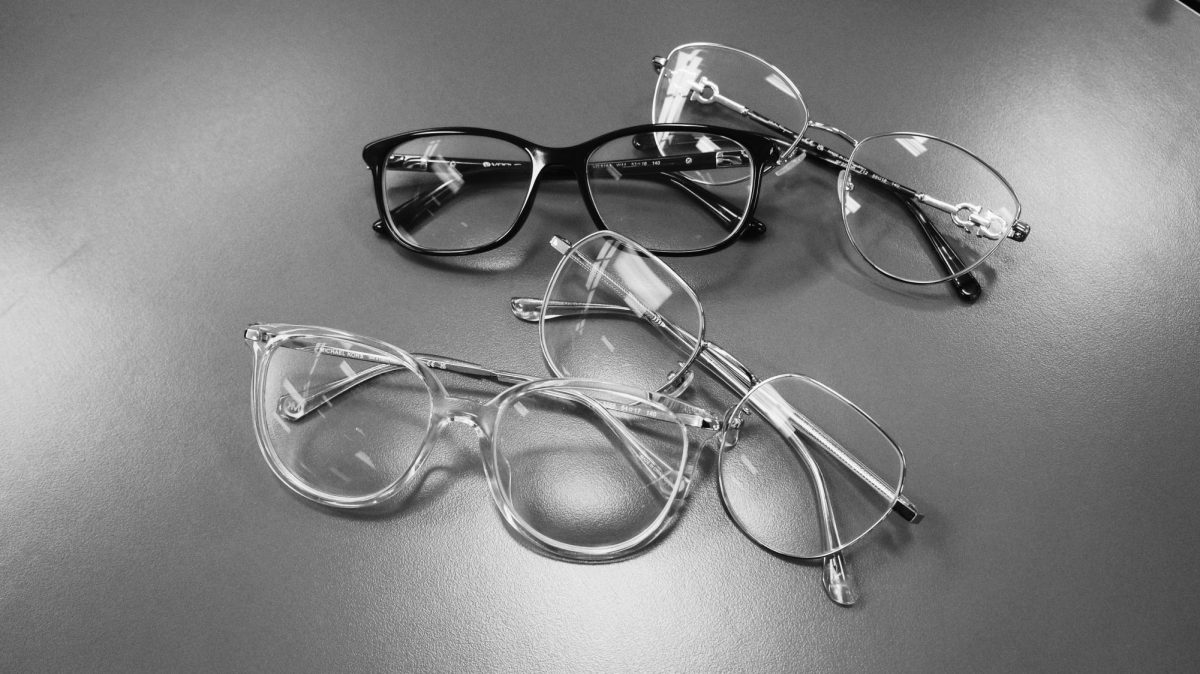From reading textbooks to viewing lessons on a whiteboard or screen, the ability to effectively see plays a key role in learning and teaching. Many students and teachers at SCHS rely on glasses to see clearly throughout the day. While some wear glasses full-time, others use them only for specific tasks like reading or using a computer.
One realizes they need glasses in different ways, often through small struggles that build up over time. Some notice they have to squint to read the board or strain their eyes to focus on a book. For librarian Jonathan Wilson, his eye-opener for needing glasses was working through a media company that involved review of small text.
“I was doing copy editing in media, so I had to do a lot of reading with small printed text and proofreading texts that went on products and texts that went on advertisements that were super small,” Wilson said. “After a while, I just started to realize that I had a lot of problems focusing on words that were up close. The more that text reading and text editing became part of my job duties, the more I thought I should invest in glasses to deal with my farsightedness.”
Senior Alessandra Medenilla recalled that her need for glasses began in middle school.
“I remember in like sixth grade, I noticed I couldn’t see the board and I just thought that was a normal thing. Then people were like, ‘No, I can see it perfectly fine,’” Medenilla said. “So then I got checked out. I think my prescription was 18 out of 20, and I was like, ‘Oh okay, I need glasses.’”
Laser-Assisted In Situ Keratomileusis is a common eye surgery that reshapes the cornea to correct vision problems. It also aims to improve vision without glasses or contacts. Chemistry teacher Saheed Mohamed has heard positive remarks about this procedure but is hesitant about getting the surgery.
“I have definitely considered LASIK surgery because Mrs. Fabia and Ms. Carvalho both have had LASIK surgery successfully, but I’m still just scared,” Mohamed said. “You hear one horror story, and then it scares you for life.”
On the other hand, Wilson believes LASIK surgery is unnecessary for his personal eye conditions.
“I can read very far away, so driving and stuff like that isn’t a problem for me. It’s just long periods of reading small text, or just reading a book. I would need glasses for that,” Wilson said. “If I were maybe nearsighted and had trouble driving or reading important signage from far away, then I’d probably have considered it, but no need to consider it at this point.”
Glasses have long been labeled as “nerdy,” largely due to portrayals in media and associations with academics. Wilson witnessed people fearing their social status because they wore eyewear.
“There’s just that long lasting stigma that glasses are connected to academic abilities. That was a major thing when I grew up in the ‘90s,” Wilson said. “I knew people who just would not wear their glasses. They needed glasses – they were nearsighted – but they just refused to wear them at the detriment of their personal health.”
Mohamed, however, rebuked the stereotype and believes the label is in the past.
“I think that those were stereotypes back then, but maybe because I’m older and more mellow now, I don’t see it in that way,” Mohamed said. “Obviously as a teacher, I’m not gonna see someone like, ‘Oh, they have glasses they must be smart.’ I see it like, ‘Oh, they must be blind.’”
Routine eye exams reveal vision issues, sometimes surprising those who thought their sight was fine. Whether the signs are gradual or sudden, discovering the need for glasses can be a life-changing moment, according to Medenilla.
“If you have bad vision, I think you should just check it out as soon as possible because I didn’t know that I had bad vision until I actually got to check it out,” Medenilla said. “For months, I just lived with blurry vision. Get checked out. I know it’s really expensive, but your life will be a lot easier for sure.”


